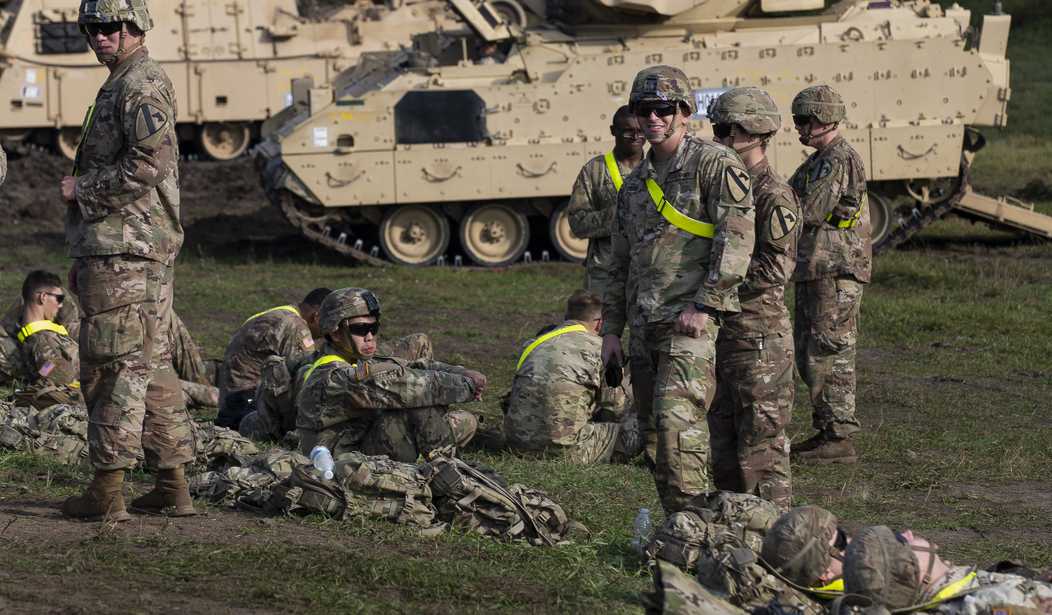This is precisely the sort of news we didn't need in a week that's already brimming with disappointments. The United States Defense Health Agency recently published a new study on health and mortality rates among American military personnel. While physical healthcare, in general, has been improving in many areas, mental healthcare is still lacking in significant areas. One of the most alarming statistics reveals that U.S. soldiers were more likely to die by suicide than from combat industries. And it wasn't by a small margin. Soldiers were nine times more likely to die in that manner. The second-leading cause of death was accidents. This data wasn't drawn from the current era, either. The period covered ran from 2014 through 2019 while the war in Afghanistan was still grinding on. Solutions to address this seem to remain elusive. (USA Today)
U.S. soldiers were almost nine times more likely to die by suicide than by enemy fire, according to a Pentagon study for the five-year period ending in 2019.
The study, published in May by the Defense Health Agency, found that suicide was the leading cause of death among active-duty soldiers from 2014 to 2019. There were 883 suicide deaths during that time period. Accidents were the No. 2 cause with 814 deaths. There were 96 combat deaths.
The suicide figures from 2019 predate some Army and Pentagon initiatives to combat suicide, including a workforce that addresses harmful behaviors like alcohol abuse that can contribute to deaths by suicide. In addition, combat deaths declined from 31 in 2014 to 16 in 2019 as deployments to war zones in the Middle East and Afghanistan decreased.
In one sense, the ratio of suicides to combat deaths is probably not an ideal indicator. After all, we're no longer actively involved in any hot wars (at least for the moment) so the rate of combat deaths should be lower. We still have soldiers stationed in dangerous places and they occasionally fall to terrorist attacks, sadly, but we're not sending battalions into open combat currently.
The Army attempted to offer a partial explanation by pointing to rising suicide rates among all Americans regardless of vocation. To a certain extent, there may be a kernel of truth to that. The National Institute of Mental Health released statistics last year indicating a 40 percent increase in suicides across all age groups and genders in America from 2000 through 2021. Men were four times more likely to commit suicide than women, but economic prosperity and substance abuse were also significant contributing factors.
That still doesn't come close to explaining the situation with the Army, however. Looked at based on per capita figures, the overall suicide rate for Americans went from 10.4 per 100,000 to 14.0 over the 21-year period measured. By comparison, the rate in the Army was 36.1 per 100,000 in 2021, and last year it reached 36.6. That's not a minor difference. That's more than two and a half times greater than what is seen in the general population. It's also far more than should be written off as a coincidence.
So what, if anything, can be done about it? Speaking as a veteran, I can assure you that military life is not easy, particularly from a mental and emotional perspective. You can make plenty of great friends while serving, but it is often still a very lonely life where members are separated from their family and lifelong friends for long periods of time. That's particularly true when you are deployed overseas. Loneliness is frequently cited as a contributing factor among those dealing with suicidal ideations. Alcoholism and drug abuse are also unfortunately too common in the military despite the Army's best efforts to combat those problems. They are contributing factors as well.
Yet there are no doubt cultural considerations to be taken into account that are much more difficult to measure. We've seen many reports of soldiers and sailors and airmen and marines who no longer feel the same sense of inspiration and historic honor given the current policies being imposed on the military. As in so many other areas, DEI has crept into the military bloodstream like a poison where military service has traditionally been viewed among the ultimate bastions of meritocracy. The color of your skin or how much money your parents had didn't matter. You were either capable of making the cut or you weren't. It was never about the size of the dog in the fight. It was always the size of the fight in the dog. That is sadly not so much the case anymore. If the military was your chosen career and you might consider it too late to start over from scratch in the civilian world, how would you feel if the service that you pledged your life to seemed to be decaying before your eyes?
I hope a solution can be found to right the ship, both figuratively and literally. I still remember the pride I felt putting on the uniform, taking the oath, and reporting for duty for the first time. It was hard, but it was all worth it and I came from a long line of veterans. When I served, there was nobody like Rachel Levine having stars pinned on them. He/she wouldn't have made it through the first week of boot camp.








Join the conversation as a VIP Member